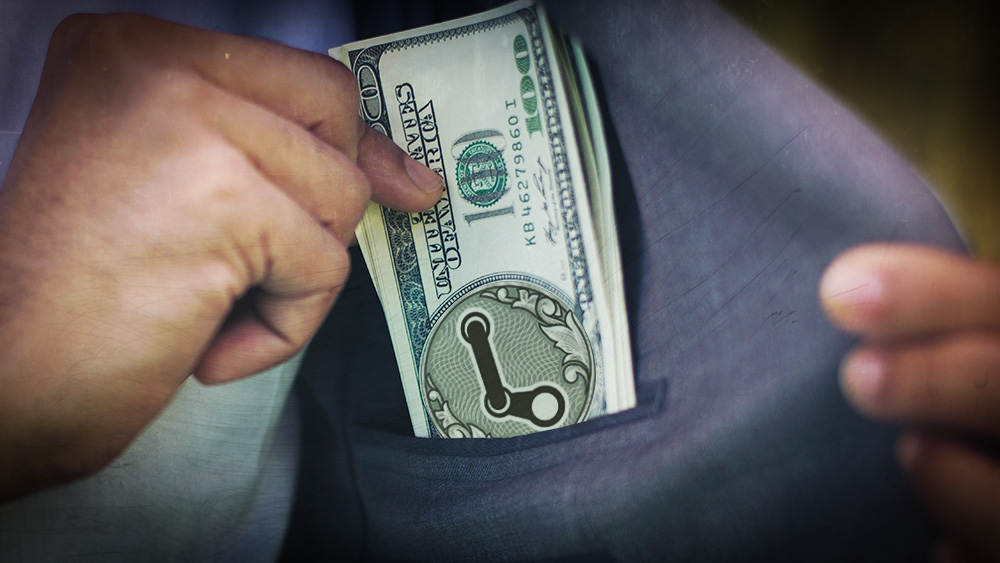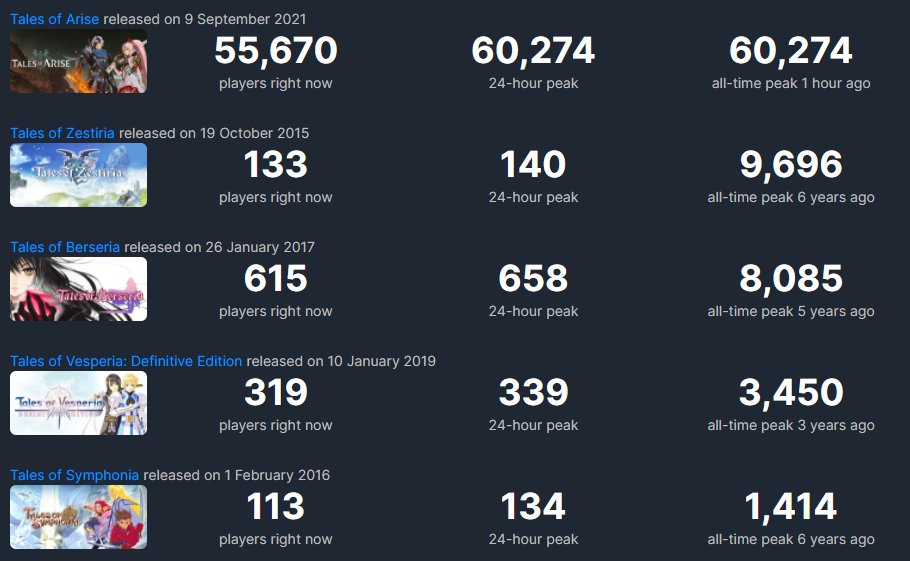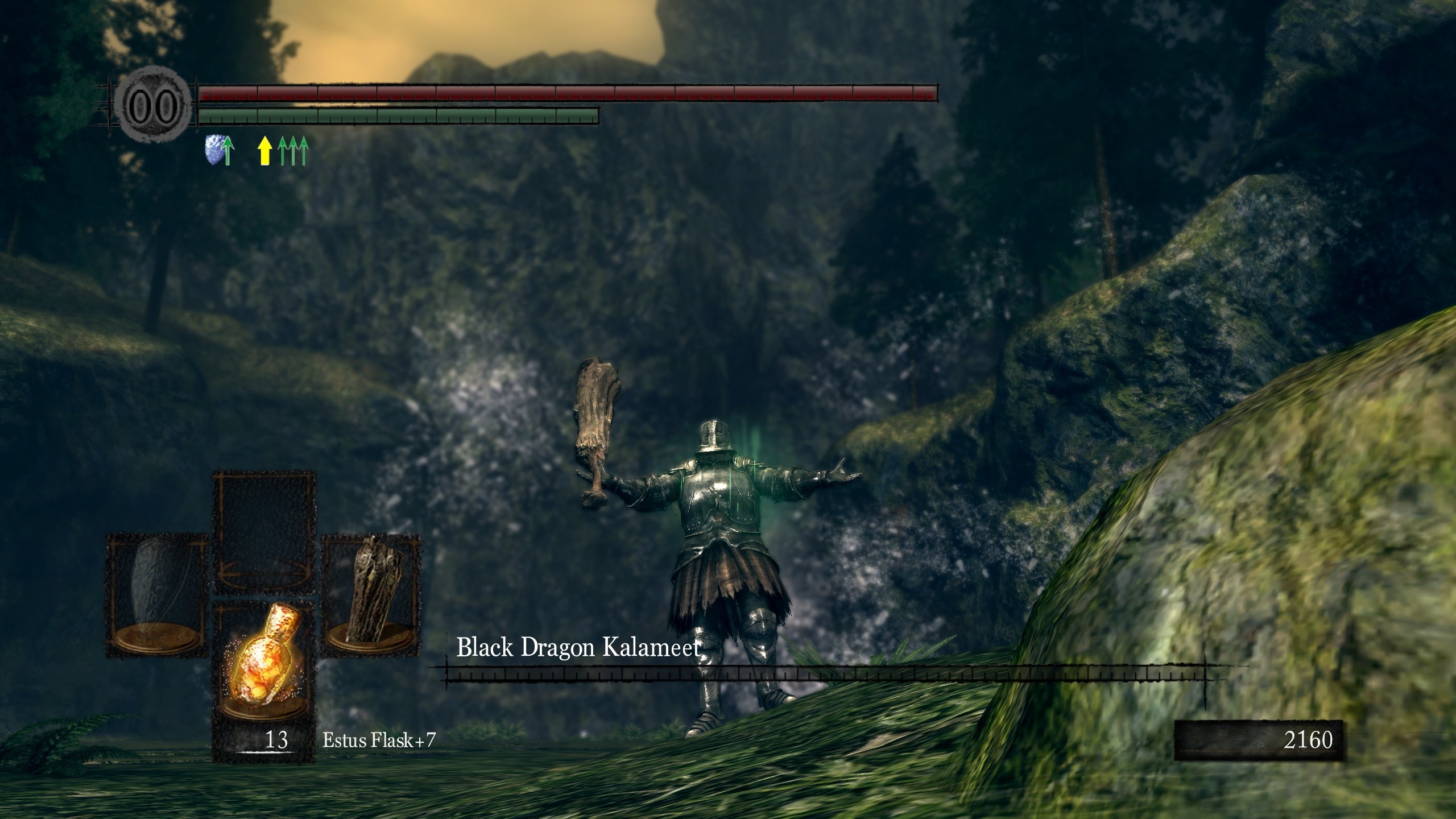Agreed, but the idea that initial game sales aren't substantially reduced is also entirely hypothetical.
The thing is, the sales number is no longer the measure of success in Tim's brave new world. It's how much money a game makes and that includes Tim's money hat. For an EGS exclusive deal to be considered bad for a publisher, the amount of money they would make launching the game on Steam minus the amount of money they make anyway when people buy it a year later has to be more than what Tim offered them. In other words, Epic money + late Steam sales revenue > launch Steam revenue makes it the right choice.
And it's not even that simple. Suppose you have a projected revenue of 10 million dollars for your game. Tim shows up at your door and says I'll give you 8 million dollars right now and you can do whatever you want after a year. You probably take that deal, even if it is less than you thought, because it's money in your hand right now. You don't have to satisfy tens of thousands of customers to get that money, and you can probably make back at least some of it from those customers later.
As a main point of "evidence" you come back to games showing up in the top seller list, but as I noted that's not actually any relevant information one way or the other.
We don't have any sales numbers or data so all we can do is infer information. A game being in the top sellers list means only one thing; it's making money. That's the only way it gets there. Just like we infer information from the number of reviews a game gets. Just like you infer information from pointing out peak numbers for Britannia and Troy. To say that the top sellers is not actually relevant information is needlessly dismissive.
One game you explicitly mentioned is TW:Troy. Let's look at this a bit more. TW:Troy has a concurrent player peak of 4.7k on Steam.
Here are those same numbers for other TW games that recently launched on Steam:
TW: Three Kingdoms: 192k. TW: Warhammer 2: 85k. A Total War Saga: THRONES OF BRITANNIA: 23k.
Perhaps the single most relevant of those is the last one -- Britannia is also a "minor" spinoff in the "Saga" subseries, and yet it peaked at 5 times the player count. That usually means roughly 5 times the initial/launch sales. Does the exclusivity deal make up for a 5x reduction in full-price Steam sales? We can't really know, and none of this is hard evidence, but don't you think it makes quite the compelling point that a delayed launch can, in fact, substantially reduce your success?
I picked Troy because it was the last big game from EGS that I could think of. It's not the best example to base any sort of inferences because of two factors; it was a AAA game and it was given away for free. I imagine a lot of people who prefer to wait out exclusivity and get games on Steam were probably tempted to get this one on EGS anyway because of it being a high profile and completely free game, removing all the friction to obtain it. Another guess is that if the game had launched for $60 on EGS, a lot of people would have waited to buy it on Steam and the Steam peak CCU would be higher. This is just me thinking out loud though.
We don't know what the deal was for Troy, of course. Whether it was lump sum or per download or some combination of that or something else entirely. What we do know for a fact is that Sega was okay with the deal that ended up with 7.5 million copies of their brand new game being given away for free.
Seven and a half million copies. I can't give you a number but I have to imagine it takes a
lot of money for that to come to pass. For reference, Britannia sold between 275k and 1 million copies according to SteamDB. To assume that Epic's payment for this deal wouldn't dwarf 5X these current Steam launch sales is absurd. What's the most generous sales figure we can attach to a 5k peak CCU? 50k? 100k? Does anyone think Epic didn't pay for at least 500k copies of this brand new full price Total War game? I'd imagine it was more. Sega also took another deal with Sonic Colors too, so it doesn't seem like they consider it a bad idea.
Also, I don't think the case for "repeat customers" is as strong as you make it out to be: lots of publishers who seemed to be all-in on Epic exclusives have gone back to day-and-date Steam releases, and several "repeat" customers were negotiated in bulk from the start.
I'm not making some grand argument that every publisher is going back for the deal. It's just an observation from what I see happening. Also I was incorrect in calling them customers to begin with. It's Tim who is actually the customer in this scenario. He has to show up at a publisher's door wearing his hat made of money for any of this to happen. Maybe he saw some of his past deals and was like "Nope, fuck that, not doing that again". So those publishers are like "Okay, well, back to Steam as usual".
Here's something else I was thinking about; At first there weren't that many Japanese publishers taking deals or even publishing on EGS. I had this impression that it's because their business culture is a little more conservative and risk averse. I think it's possible that might be about to change. When Tim went to Square Enix they were like "Fuck yea, we'll sell out for a lollipop and two bubble gums so let's go". People here say that Namco and Capcom wouldn't do that and they want to grow their user base on PC. That's possibly true, but also don't forget that Capcom recently took multiple deals to delay the PC version of the last two Monster Hunter games. Both money hatted PCVR updates for Ace Combat and Resident Evil 7 vanished without a trace. Koei Tecmo just had a freebie giveaway on EGS, so they're warming up to the idea of EGS as well. They don't even sell that many copies of their games on Steam (relatively speaking) so how expensive would it be to get them to release an exclusive there?
I don't know guys. I think any publisher can be bought out if you give them enough money.
EDIT - went to get a snack in between posting and Wok said half of what I said anyway. Sorry for the repetition.


 arstechnica.com
arstechnica.com






 . Heck even I own a copy of the game on Steam because a friend gifted it to me during that Humble price mistake since I otherwise don't buy EGS exclusives even on Steam. I have a friend who double dipped on both EGS and Steam. Both of us have never played the game on Steam lol. Coming back to the point, 2K announced last year that the game sold 10 million copies and that Steam sales were ahead of their estimates (during an investor call, so they can't lie about it). So think about it... 2-3 million copies worth of full price sales from Epic plus 1-4 million discounted sales on Steam. Yeah, 2K isn't worried about PC revenues. In fact, they're so not worried that they took the deal again for the spinoff game.
. Heck even I own a copy of the game on Steam because a friend gifted it to me during that Humble price mistake since I otherwise don't buy EGS exclusives even on Steam. I have a friend who double dipped on both EGS and Steam. Both of us have never played the game on Steam lol. Coming back to the point, 2K announced last year that the game sold 10 million copies and that Steam sales were ahead of their estimates (during an investor call, so they can't lie about it). So think about it... 2-3 million copies worth of full price sales from Epic plus 1-4 million discounted sales on Steam. Yeah, 2K isn't worried about PC revenues. In fact, they're so not worried that they took the deal again for the spinoff game.













